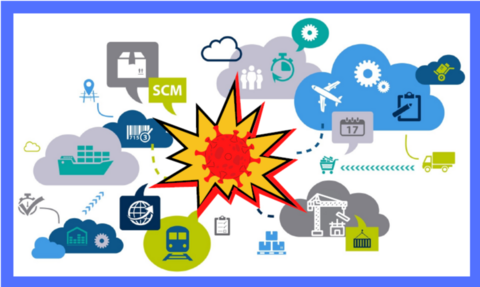FEPORT Sixth Annual Stakeholders’ Conference –

Brussels, December 1st, 2021
COVID-19: A crash test for the resilience of the maritime logistics chain?
Dear speakers, Dear guests, Dear colleagues,
It has been a pleasure to welcome you for the sixth edition of our Annual Stakeholders’ Conference. The conditions were very particular this year, but we are extremely grateful to the speakers and guests who joined us either in Brussels or remotely.
We did not want to “skip” 2021 as we were compelled to do for the 2020 edition due to the pandemic and the outcome of this 6th edition confirmed that it was worth doing so.
Many thanks to all speakers for their time, for sharing their thoughts and providing us with valuable insights.
Thank you to the representatives of our sister organizations who were also with us in Brussels. A particular thank to Anna Maria Darmanin for the moderation of the first session.
Consensus was voiced by speakers that the maritime logistics chain had shown itself to be very resilient and had responded well to the challenges posed by the COVID-19 crisis.
However, vulnerabilities had also been exposed due to other factors and, as such, the sector will have to ponder on the real causes of the current disruption to implement change and remain resilient in the face of such future possible crises.
The question was also raised as to whether a level playing field was in place and there were calls for the Commission to consider this issue in detail, particularly with regard to the Bloc Exemption Regulation, given the backdrop of increased costs in freight shipping and the high level of market concentration.
One can agree that it is not the role of the regulator to intervene when disruptions occur in the market provided that these cannot find their root causes in the existing regulatory framework, which does not effectively guarantee a level playing field.
Looking back to 2020 while COVID-19 seemed to have limited tangible impact on global supply chains. 2021 was completely different as supply shortages of certain products had been seen.
The last two years had been challenging for other additional issues, such as labor shortages, a decline in vessel calls and hinterland transport delays and ships at anchorage have been increasing, thereby putting strain on the entire system. This trend would only be exacerbated going forward as vertical and horizontal integration would only increase, and this would most likely push smaller players from the market.
Looking forward, four potential disruptors for the market: environmental, technological, geopolitical and demand (demographics) are expected to also have significant impact. The market is becoming ever more complex and, across the board, there was a push towards investing for sustainable outcomes. This was putting increased pressure on technology and innovation and uptake was being seen in the form of large digitization programs.
Production of goods like textiles and the car industry were continually being brought back to Turkey and Morocco and it happens that Chinese manufacturers were also investing a lot in Eastern Europe and thus near-shoring is happening.
It is also expected that the EU emissions trading system (ETS) will have a big impact on the connectivity of Europe.
Panelists also stated that largescale change in the sector was also required to keep pace with both the digital and green transformations. In this regard, adequate financing from both the public and private sectors would be required, particularly when it came to meeting decarbonization targets.
Further issues facing the sector identified included the fact that many seafarers were currently reconsidering their careers and thus better prospects were needed to ensure a potential labor shortage was avoided, and the need to seek solutions at a global level given the globalized nature of the modern maritime logistics chain.
COVID-19 had in many ways exacerbated tensions between the US, EU and China and highlighted the vulnerabilities of economies and the dependencies on global supply chains.
On the environmental front, the Chinese government seems more willing to engage in debate on climate change. The EU and the US had also been launching infrastructure initiatives and, last year, the ‘Build Back Better initiative’ was announced by Mr Biden. The Commission is currently announcing its ‘Global Gateway’ instrument and, though the EU and US had different strategic interests, there could be some common cooperation.
You can have access to the Conference recording, to the extensive version of the Conference report, to the speakers’ presentations and pictures on the webpage of the conference.
We look forward to seeing you next year!
We wish you and your families a joyful holiday season and a happy new year.
With kind regards,
FEPORT





